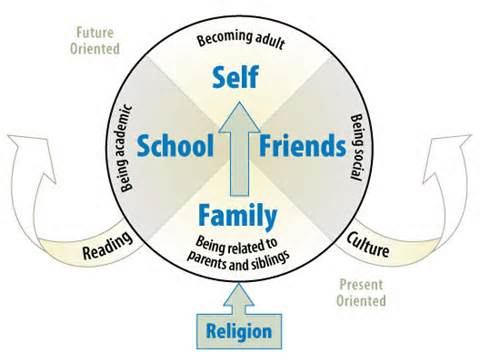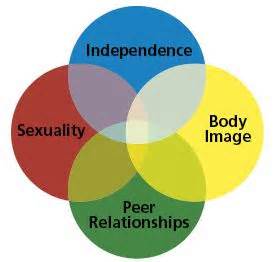Adolescence physical, language, and cognitive development milestones (11 to 18 years)
Physical – Most girls will be physically mature, and most will have completed puberty. Boys might still be maturing physically. They may be concerned about their body size, shape, or weight. Eating disorders can be common especially among girls.
Language – They are more independent, working, caring about their friends, communicating with parents more often with less conflict.
Cognitive – reasons abstractly in situations that offer many opportunities for hypothetico-deductive reasoning and propositional thought.
Grasps the logical necessity of propositional thought, permitting reasoning about premises that contradict reality.
An atypical developmental issue would be not being getting unacceptable grades and ditching school.
To help encourage your teen to develop solutions to problems or conflicts, help your teenager learn to make good decisions. Create opportunities for him to use his own judgment and be available for advice and support. Encourage your teen to get enough sleep and physical activity so they will not have to ditch school to get sleep or to finish assignments.
Typical and atypical development of functional human..-Frontiwea.journal/10…/pdf by LQ Uddin – Cited by 108 – Related articles May 21, 2010 – childhood to adolescence and adulthood…studies of typical and atypical brain development
Depicted are two graduates who skipped kindergarten from Bottles to Books Primary School. It was move in day at the country's #1 college Princeton University. She is a senior now and is looking forward to graduation in June 2018. The young lady on the left is now a student at New York University in the World Class Tisch School of Performing Arts. Both were summa cum laude high school graduates. The young lady on the right was a valedictorian in her high school class.
Physical – Most girls will be physically mature, and most will have completed puberty. Boys might still be maturing physically. They may be concerned about their body size, shape, or weight. Eating disorders can be common especially among girls.
Language – They are more independent, working, caring about their friends, communicating with parents more often with less conflict.
Cognitive – reasons abstractly in situations that offer many opportunities for hypothetico-deductive reasoning and propositional thought.
Grasps the logical necessity of propositional thought, permitting reasoning about premises that contradict reality.
An atypical developmental issue would be not being getting unacceptable grades and ditching school.
To help encourage your teen to develop solutions to problems or conflicts, help your teenager learn to make good decisions. Create opportunities for him to use his own judgment and be available for advice and support. Encourage your teen to get enough sleep and physical activity so they will not have to ditch school to get sleep or to finish assignments.
Typical and atypical development of functional human..-Frontiwea.journal/10…/pdf by LQ Uddin – Cited by 108 – Related articles May 21, 2010 – childhood to adolescence and adulthood…studies of typical and atypical brain development
Depicted are two graduates who skipped kindergarten from Bottles to Books Primary School. It was move in day at the country's #1 college Princeton University. She is a senior now and is looking forward to graduation in June 2018. The young lady on the left is now a student at New York University in the World Class Tisch School of Performing Arts. Both were summa cum laude high school graduates. The young lady on the right was a valedictorian in her high school class.



